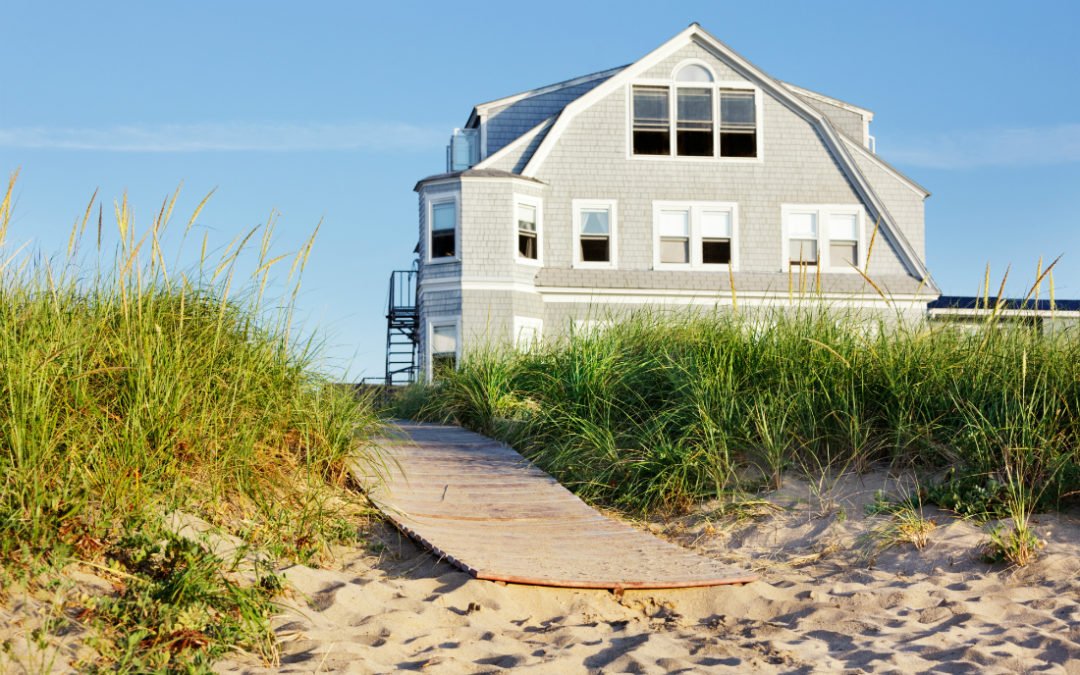Whether you live in the thawing North or in the always mild South, the onset of spring leads to thoughts of summer vacations. After all, next month will be May. And Memorial Day is often considered the unofficial beginning of summer getaways.
At this time, you might be weighing the purchase of a second home specifically for vacations. Here are some of the issues to think about, so you can make a well-reasoned decision.
Extent of use of a vacation home
If you buy a vacation home, how often will you use it? A beach house or a lakefront cabin that’s, say, 50 miles from your primary residence may offer an opportunity for regular visits. On the other hand, if you live in Pennsylvania and buy a place in Maine, travel constraints may limit the amount of time you’ll spend at your vacation home.
Buying a second home requires a certain investment, emotional as well as financial. Are you sure you’ll want to spend frequent vacations in the same place, year after year? You may be comfortable going away to your own home, where you’ll be assured of sleeping on your sheets and eating the food you’ve stored in your refrigerator. Some people will value the familiarity, But others may prefer the excitement and adventure of seeing new places.
Family circumstances also can play a role in deciding about a vacation home. You might envision a place where children and grandchildren come during summer vacations and school holidays. Such visits can be memorable.
In today’s world, youngsters often have other obligations and opportunities, from soccer practice to wilderness tours. Again, be realistic about how often you can expect “same time, next year” family gatherings.
Cost considerations
As is the case with any real estate purchase, you’ll want to buy a desirable vacation home at a reasonable price. Be aware that the cost of a vacation home goes well beyond the initial outlay. You’ll probably need to furnish the home, from bedding to bookcases. If you buy a place that’s fully or partially furnished, that likely will add to the purchase price. And you’ll be living with someone else’s taste.
If you own your primary residence, you’ll realize the other costs involved in owning a second home. They include property tax, homeowner’s insurance, utilities, maintenance, and possibly dues to a community association. You can compare those costs with the expense you’d incur by renting a house for annual vacations or going to hotels.
Of course, buying your own vacation home offers a chance to benefit from property appreciation. Long term, many people have enjoyed gains from real estate, and that’s certainly the case if you buy in the right area at the right price. However, real estate markets are not easy to predict. Some home prices have soared in recent years. Others have not recovered from the trauma of the 2008-2009 housing crisis. Profits from a vacation home purchase may result, but you can’t count on them.
Tax treatment
To modify the familiar saying, you shouldn’t let the tax tail wag the vacation home dog. Buy (or decide not to buy) a second home because of how you’ll use it and your cost-benefit outlook. Any tax savings you’ll enjoy from a purchase will be a pleasant byproduct. Downplaying the tax aspects is especially important now, with such uncertainty about future tax legislation. President Trump and the Republicans in Congress have said they want major changes. But as of this writing, we don’t know precisely what will be in any new tax law. And we certainly don’t know what the effective dates will be.
With that in mind, you should know the current tax treatment of second homes. Taxpayers who itemize deductions typically can include their costs for property tax and any mortgage interest. The tax exclusion for capital gains on a home sale (up to $250,000, or $500,000 on a joint return) does not apply to second homes. However, you can sell your primary residence and move into your vacation home for at least two years before selling the vacation home, but current tax law will limit you to counting only a portion of the home sale gain on the former vacation home when calculating the exclusion.
Different tax treatment may apply depending on if you rent your second home for less than or more than 15 days during the year. Again, the numbers may be changing, depending on what happens this year in Washington.
